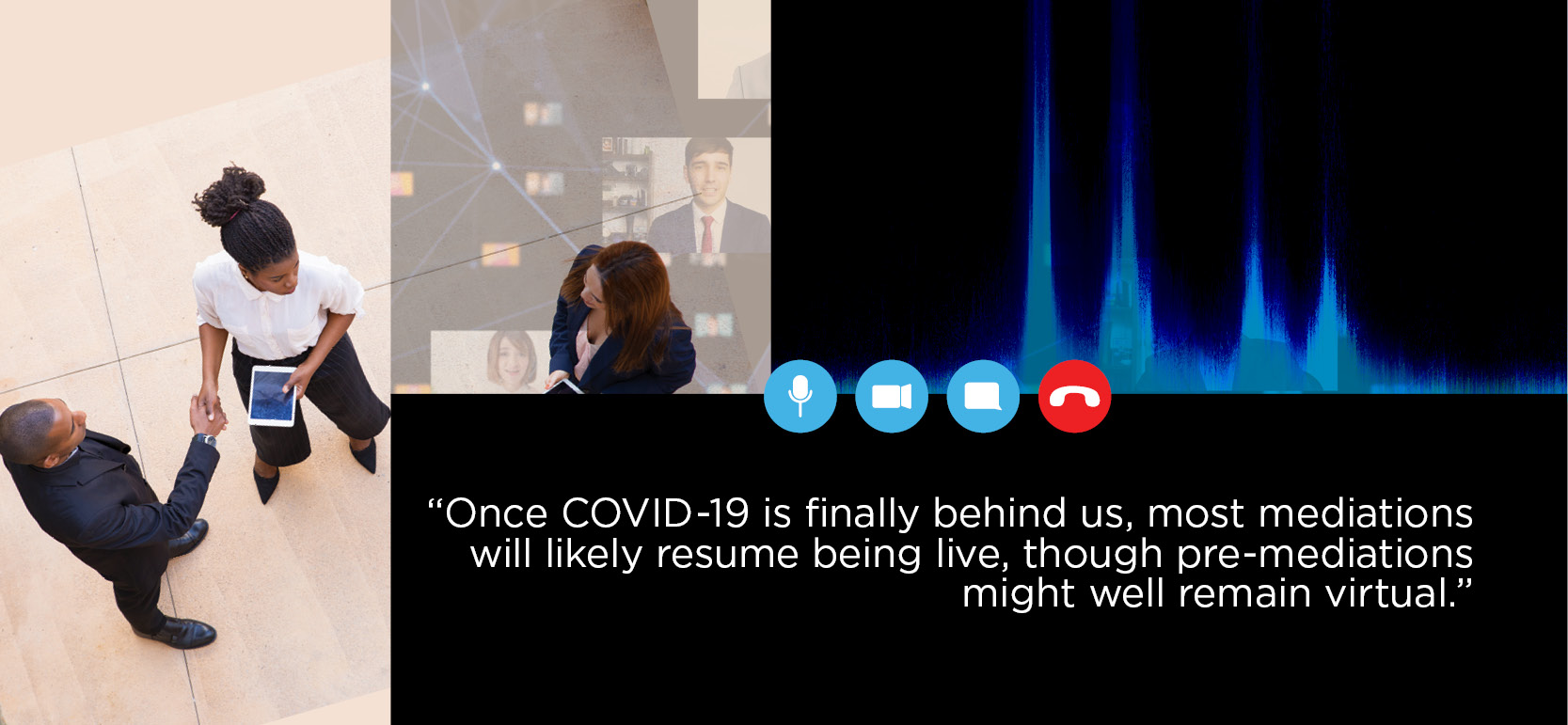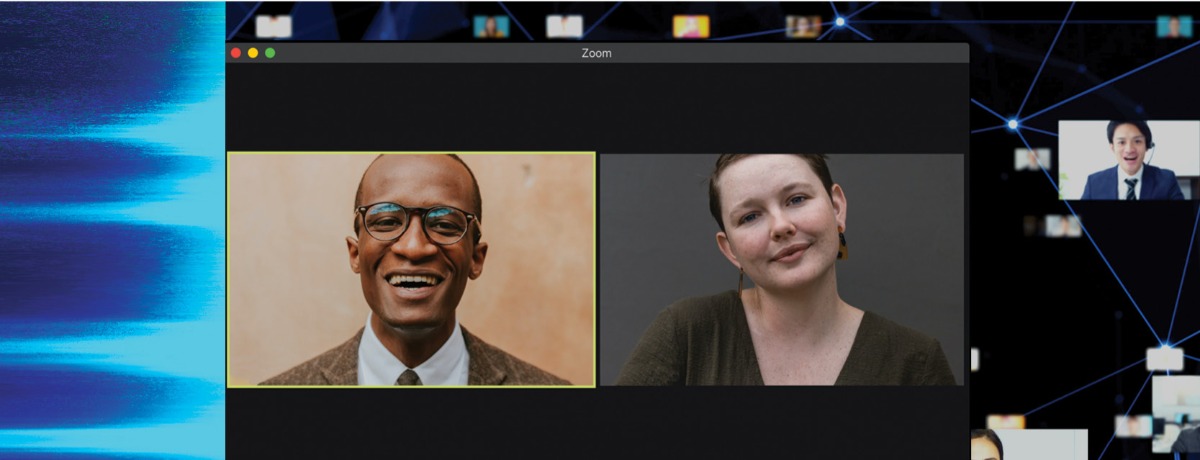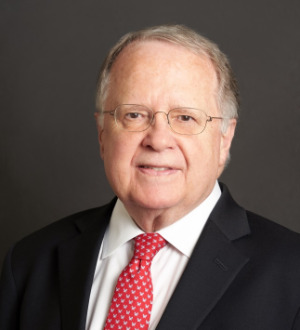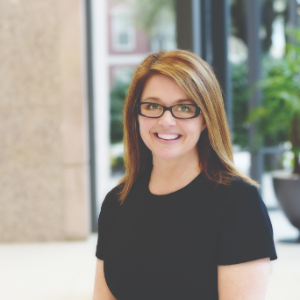The COVID-19 pandemic has prompted the cancellation of many trials, arbitrations, mediations, depositions, and a host of other legal proceedings. In response, lawyers, judges, and clients quickly built a system that enabled them to move forward virtually and continue to resolve disputes. Is this virtual world as good as the real one? Are the two indistinguishable enough that the old commercial tagline applies: “Is it live, or is it Memorex?”
Many construction mediators will tell you that while virtual mediation is certainly different from live mediation, it can be equally successful. Litigants and trial lawyers are a little less enthusiastic, but many nonetheless extol its virtues in certain situations. Virtual mediation offers some clear advantages, but it also removes a few tools from the mediator’s toolbox, which might make some disputes harder to settle. Yet it’s the only game in town for the foreseeable future—so litigators, trial lawyers, and mediators must figure out how to make it work.
Technical Difficulties
The most obvious difference between live and virtual mediation is that the latter takes place over the internet, and some technology platform—Zoom being the most popular—is necessary to make it work. Zoom is easy to use, and its most important feature for mediations is the ability to use multiple breakout rooms for caucus sessions.
In the early days of pandemic lockdowns, Zoom was plagued by security problems, but it seems to have corrected them and implemented additional user protections. Regardless, though, anyone using Zoom ought to investigate these concerns and employ the recommended best practices to avoid security and privacy trouble: use of a Zoom-generated ID for each meeting, requiring a password to join, enabling the “waiting room” feature, and locking the meeting once everyone has joined.
Technical difficulties during mediation are pretty much inevitable, and all parties must anticipate them and establish a plan to combat them. At minimum, a list of names, cellphone numbers, and email addresses should be provided to all participants before the mediation begins, as well as a sheet of instructions to follow if anything goes awry.
Pre-Mediation Phase
A robust pre-mediation is a staple of most mediations today. It allows the parties and mediators to plan the process; ensure adequate information disclosure; identify obstacles, risks, and interests; address potential people problems; and discuss prior offers. While pre-mediation is more vigorous today than it once was, it’s often still limited to a telephone conference between the mediator and the lawyers. In virtual pre-mediation, all parties—clients included—can get on a video call during which the mediator can begin to develop a face-to-face relationship with the principal and the lawyer, and the case can be discussed in greater depth. Virtual pre-mediation thus serves as the first caucus session—a real benefit to the entire process. It’s therefore likely to stay long after the coronavirus is defeated.
Joint Opening Session
In many parts of the country, the joint opening session is dead or on life support, particularly when the pre-mediation phase has been robust. Yet there are still times when an opening session is beneficial. One big reason: It provides an opportunity to present your position directly to the other party’s decision maker and—especially important when you haven’t been able to do so already—make eye contact. (Indeed, this might be the only opportunity you have to meet and observe her.) The other decision maker has likely heard your client’s argument solely from its company’s lawyer, who probably did not present the strengths of the case as well as you can.
If you have an opening session, focus on the other decision maker to see what you can glean from her reaction to the presentations. The opposite is true, of course; your counterparts will likewise be focusing on your decision maker’s reactions as well.
In this virtual world, PowerPoint slides, photographs, and highlighted contract terms will have a greater impact, because they remain onscreen, visible to the other party, for a long time instead of just being unreadable printouts projected on a wall at the far end of a conference room. The other decision maker is more likely to read them when she’s otherwise unoccupied—something to take advantage of.
Lawyers have spent their careers in live proceedings and know how to read and connect with others. Few have done so through the eye of a camera. It’s a different experience: When speaking, you and your client will be seated, not standing, and should look directly into the camera, as if you’re talking to a real person across the table. Don’t look down at your phone or sideways at another monitor. Further, people get bored easily when staring at a talking head on a screen. Show some emotion: Change your cadence, volume, and tone. Within reason, move around. Use your hands.
Unfortunately, you can’t really “read the room” and have no way to know whether you’re connecting with others or if you’ve simply lost them. Shorten your presentation to stave off boredom, then, and change speakers often. This isn’t the same presentation you’d make live. It’s like getting to Carnegie Hall: You and your client need to practice, practice, practice to make the virtual platform work for you.
Caucus Session and Closing
Everyone understands that the heavy lifting—i.e., the closing—occurs in the caucus session. The lift becomes even heavier in a virtual mediation. The mediator typically uses the morning to learn about the case and develop a relationship with the decision maker in order to set up the afternoon closing. Building this relationship is exponentially harder on a screen than in person. In a live mediation, the mediator moves from one caucus room to another, meets in the hall, and pulls the principal and attorney out to discuss things—all the while building camaraderie that will be put to use at closing. Good mediators use their physical presence and personality to work with the principals—and, crucially, to read them. A mediator can still do this virtually, of course, but it’s generally clunkier and less effective.
Likewise, momentum and close relationships are harder to develop online. The ability of the mediator to quietly call one of the lawyers or principals into the hall for a quick word is limited, if not downright impossible. In the virtual world, the mediator and principal might simply be small heads on a screen amid many other small heads—a diminishment of one of the mediator’s most useful tools.
What to do? Counsel must make more effort in pre-mediation to convey the information, arguments, risks, anticipated obstacles, and interests to the mediator. Each party should also reduce the number of participants earlier on; you can always bring them back with a quick phone call. Your ability to read and persuade others on video is probably highest when you’re one-on-one with the mediator or other decision maker. Look the mediator and principal in the (virtual) eye and talk to them individually—don’t get caught up in the rush of pontificating to a large group.
One of the best closing techniques in a live mediation is a face-to-face conversation—maybe even over dinner—between the principals. A video meeting of principals is doable, of course, but quite obviously less effective.
There are different pressure points during mediation that often spur a settlement. One is the financial investment: Lawyers, principals, and others often must travel to wherever the mediation is being held. Another is the increased pressure, as the end of the day nears, to “get real.” The parties will leave the mediation, hit the road or catch a plane, and separate for the foreseeable future. This generally doesn’t happen virtually. At the end of the virtual day, no one needs to go anywhere, so the long days’ journey into night common to regular mediation doesn’t occur as often.
The pressure to settle at the end of the day, therefore, just isn’t the same in a virtual mediation. All the same, though, the mediator knows where all parties will be the next day—the same place they are now—and knows they can be reached to continue the mediation. What else do they have to do, after all? Pressure points are still there, then, but of a different kind: The Covid-19 world does make it easier to continue the mediation and get the dispute settled the next day.
Another pressure point: the upcoming trial. Unless the court or arbitrator is pushing for a virtual hearing, though, this might be immaterial. Even if a virtual trial or arbitration is imminent, it might not exert the same pressure to settle as a live hearing, given that the cost of a virtual trial may be significantly reduced: There’s no need to fly witnesses, experts, lawyers, and arbitrators to possibly distant locations and pay for housing and downtime while awaiting the hearing. Instead, all participants will remain in their homes, ready to be present when needed, with little lost time incurred. Will the litigants decide they can now afford to litigate or arbitrate virtually?
These are just a few of the variables engendered by this new paradigm. Communication between you and your client can be difficult during a joint virtual caucus. You’ll be in a separate breakout room with your client and other client representatives—but you might want to have a private conversation with the principal, or the ability to signal each other. The solution is texting or a quick phone call.
Every lawyer has had a client in a live mediation begin to say something she shouldn’t. In those instances, the lawyer can signal or interrupt the client to prevent the unwanted disclosure, but that’s much harder to do virtually. If you want to stop your client from speaking during a virtual mediation, simply call a time-out and ask for the opportunity to chat with your client privately.
The same is true if the client thinks you’re about to disclose something she doesn’t want revealed. The mediator will understand, and will drop out of the room or allow you to speak privately by phone. Keeping channels open for texts and emails between you and your client can serve as the virtual equivalent of in-person signaling, however, it is not instantaneous.

Conclusion
To return to the classic ad campaign: You might not be able to tell the difference between a Memorex tape and live sound, but you can sure discern the difference between virtual and live mediation. The trick is to become as effective virtually as you are in real life.
Cases that should settle will continue to settle, and those that shouldn’t won’t. However, a case dependent on the mediator’s personal ability to assist and spur a settlement is less likely to settle in virtual mediation. It’s far more difficult for the mediator to develop relationships through a computer’s camera lens. Yet litigants and trial lawyers are adaptable: They’re beginning to learn this new mediation dance and will continue to get better at it. Most understand the difficulties of closing virtually, which have caused some litigants to enter mediation with a greater willingness to close. The jury is still out, as it were, on the long-lasting impact of virtual mediation.
Once Covid-19 is finally behind us, most mediations will likely resume being live, though pre-mediations might well remain virtual. There will be cases in which the virtual format will endure, though. For a mediation with small dollar amounts or participants all over the country, virtual mediation will make sense. Perhaps an insurance adjuster, expert, or other participant from a faraway city may elect to participate virtually. If a case doesn’t close in the first live session, maybe the next session will occur over Zoom. It’s a new dispute-resolution tool that can still be employed successfully under the right conditions.
The virus is still very much with us, of course. Is it possible to have a live mediation in the time of Covid-19? Yes, under the right circumstances. Air travel is a serious detriment to live mediation right now, and any need for it would likely be prohibitive. If everyone is local, though, a small group can socially distance in several large conference rooms in a hotel or law firm. Still, all participants must take the virus seriously. It’s a new world out there.
Adrian L. Bastianelli, III, a partner with Peckar & Abramson, focuses on construction claims and litigation, with an emphasis on government construction contracts. He represents all sectors of the construction industry, including general contractors, subcontractors, owners, design professionals and sureties. Mr. Bastianelli also has an active alternative dispute resolution (ADR) practice, having served as an arbitrator, a mediator, and a DRB member on hundreds of construction disputes.
Paulo Flores, a partner with Peckar & Abramson, is board certified in construction law by the Texas Board of Legal Specialization. Mr. Flores serves as both a mediator and an arbitrator for the American Arbitration Association on its construction, commercial law, and large case panels, as well as for the International Centre for Dispute Resolution.
Kevin J. O’Connor, Co-Chair of Peckar & Abramson’s Labor and Employment practice, is a seasoned trial lawyer with a focus on employment defense, business and commercial litigation, including complex construction disputes. He represents clients in state and federal trial and appellate courts across the country as well as in alternative dispute resolution forums such as arbitration and mediation.
Robert S. Peckar, a founding partner of Peckar & Abramson, has devoted his career to serving the construction industry and bar. He represents contractors throughout the United States and the world, gaining a widespread reputation for his legal acumen, his energetic representation and his creative approach to solving contractors’ most challenging problems.

































